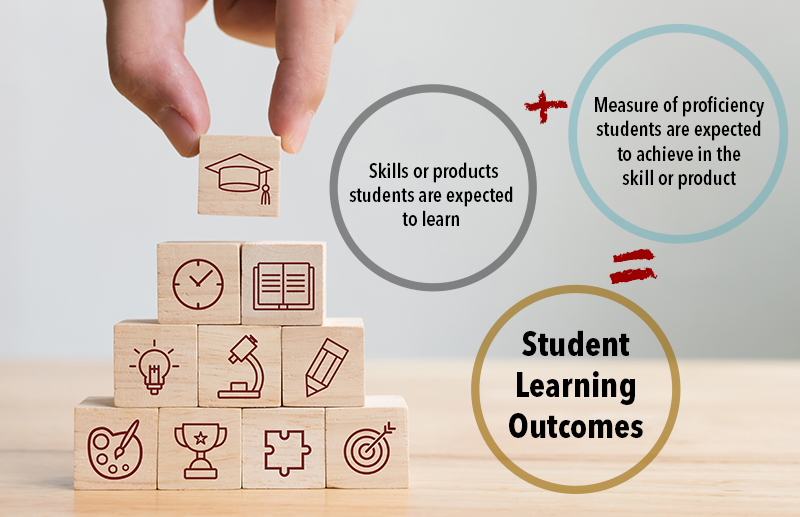
SLOAC Philosophy
The Student Learning Outcomes Assessment Council (SLOAC) is a faculty driven council that promotes success for all student groups through the continuous quality improvement of the college’s courses and programs. SLOAC supports the College’s Mission by providing a framework for faculty to assess outcomes and provides guidance for analyzing outcomes data to identify areas for innovation in teaching. SLOAC is a sub committee of Academic Senate and supports faculty by providing resources on outcomes assessment.
College of Marin Mission
SLOAC Functions
- act as a resource for faculty for issues related to outcomes assessment
- provide training and guidance for faculty and staff on student learning outcomes and outcomes assessment
- collaborate with PRIE to provide data for faculty on student learning outcomes, specifically disaggregated data
- encourage innovation in teaching by analyzing student learning outcomes data
- research, analyze and discuss new methods and theories on student learning outcomes
- highlight best practices for student learning outcomes methods
- recommend tools for measuring student learning outcomes
- provide guidance to college community for alignment with mission and accreditation standards
Accreditation Standards
SLOAC Committee
Student Learning Outcomes Assessment Council (SLOAC) is a subcommittee of the Academic Senate. Our goal is to have one faculty member from each discipline be a member of SLOAC and act as a liaison and support for their discipline. Each discipline is unique and a faculty member from that discipline can best understand the needs and functions of their specific area. Please reach out to us for any questions or support regarding writing SLOs, assessing SLOs, and using eLUMEN. We can work 1:1 with you, participate in department meetings, offer trainings, or connect you with resources to support SLO assessment.
Logan Wood (Committee Chair, Assessment Coordinator)
Fine and Performing Arts, English, ESL(N)
Alex Jones
Allied Health, CTE, Nursing, World Languages
Erik Bruce
ECE, Kinesiology, Physical Ed., Health Education, Math, Social and Behavioral Sciences,
Sara Malmquist-West
BUS, Communication, Counseling, Life and Earth Sciences, Physical Sciences
What are SLOs?
Student learning outcomes are defined as what the student will be able to do by the successful completion of the course or program (certificate, degree or service). They are the overarching attitudes, skills, and concepts that the student will acquire by the end of the semester. SLOs give more information than grades do about how well the students are achieving these individual attitudes/skills/concepts at the end of the course.
Frequency of Assessment
All courses and every section of a course should each be assessed every other year.
SLO Assessment Cycle
Determine SLOs, teach, assess, review and discuss, and implement changes if needed. One year is an assessment year followed by a year for analysis of SLO data.
